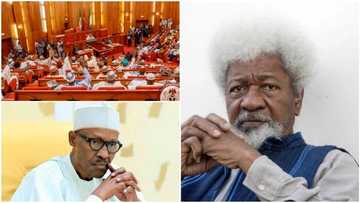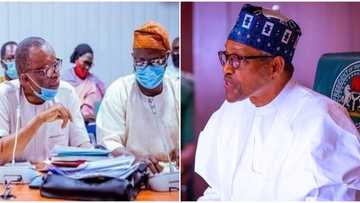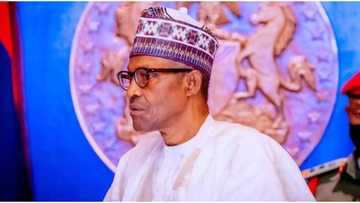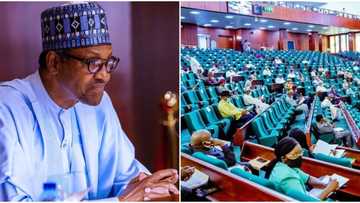Explainer: 10 Key Steps to Impeach a Nigerian President
As Nigeria faces rising security threats, PDP senators on Thursday, July 28, gave President Muhammadu Buhari a six-week ultimatum to address the frightening situation or face impeachment.
How does the impeachment process work in Nigeria? Here is how it works according to the Nigerian constitution.
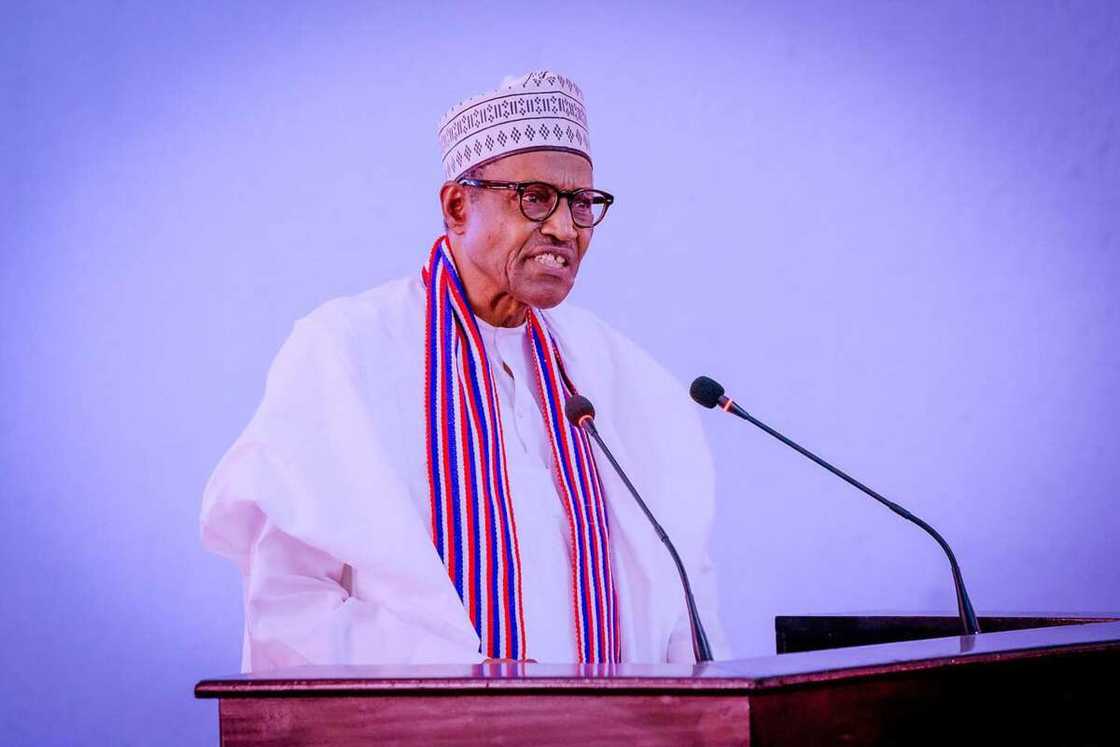
Source: Facebook
Nigeria constitution on impeachment of president
According to Section 143 of the 1999 Constitution of the Federal Republic of Nigeria as amended, here are the steps to impeach the president:
Step 1: Notice of allegation
A notice of any allegation in writing signed by not less than one-third of the members of the National Assembly must be presented to the President of the Senate.
PAY ATTENTION: Follow us on Instagram - get the most important news directly in your favourite app!
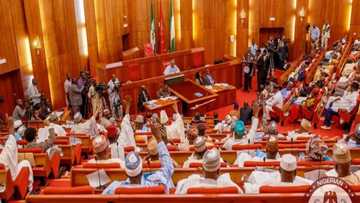
Read also
Suspense as Senate, security heads hold crucial meeting amid calls for sack of service chiefs
The notice must state that the president is guilty of gross misconduct in the performance of the functions of his office, in details.
“Gross Misconduct” means a grave violation or breach of the provisions of the Constitution or a misconduct of such nature as amounts in the opinion of the National Assembly to gross misconduct.
Step 2: The president to be served
The president of the Senate shall within seven days of receiving the notice send a copy to the president and each member of the National Assembly.
Step 3: President's response
The president will react to the allegation levelled against him and send his response to the Senate president.
The Senate president will also send the president's response to the allegation to each member of the National Assembly.
Step 4: Motion to investigate allegation
Within 14 days of the presentation of the notice to the President of the Senate (whether the president sent his response or not) each member of National Assembly shall resolve by motion without any debate whether or not the allegation shall be investigated.
The National Assembly's motion to investigate the allegation will not be declared as having been passed, unless it is supported by the votes of not less than two-thirds majority of all the members of each House of the National Assembly.
Step 5: Way forward after passage (or otherwise of motion)
If the motion fails to reach the two-thirds majority, the impeachment process will immediately stop, and no further action will be taken.
However, if the motion gets two-thirds majority, it will be passed.
Within seven days of the passing of the motion, the Senate president will inform the Chief Justice of Nigeria shall to appoint a Panel of seven persons who in his opinion are of unquestionable integrity, not being members of any public service, legislative house or political party, to investigate the allegations against the president.
Step 6: President's defence
The president whose conduct is being investigated also has the right to defend himself in person and be represented before the Panel by legal practitioners of his own choice.
Step 7: The power of the panel and duration of investigation
The Panel appointed by the CJN will:
a. have such powers and exercise its functions in accordance with such procedure as may be prescribed by the National Assembly; and
b. within three months of its appointment report its findings to each House of the National Assembly
Step 8: Step to take if allegations are not proven
Where the Panel reports to each House of the National Assembly that the allegation has not been proved, no further proceedings shall be taken in respect of the impeachment process. That is, the impeachment process will be considered as failed.
Step 9: Step to take if allegations are proven
Where the report of the Panel is that the allegation against the president has been proved, then within 14 days of the receipt of the report at the House, the National Assembly shall consider the report.
Step 10: Adoption of panel's report
Members of each House of the National Assembly have to come with a resolution to adopt the panel's report.
For the resolution of each House of the National Assembly to be adopted, it has to be supported by not less than two-thirds majority of all its members.
If this is achieved, then the president stand removed from office as from the date of the adoption of the report.
After the impeachment process has been completed, nobody can challenge it as no proceedings or determination of the Panel or of the National Assembly or any matter relating to can be entertained or questioned in any court.
Constitutional lawyer reacts
Meanwhile, a constitutional lawyer Kennedy Osunwa also spoke about the process in a report published by BBC Pidgin.
The legal expert explained that, according to the constitution, the Nigerian president can be impeached.
However, a two-thirds majority of the National Assembly must agree before the impeachment process can be successful.
Osunwa also noted that the process to impeach a president is long.
Buhari’s impeachment: Presidency dares lawmakers, calls PDP senators “minority of the minorities”
Meanwhile, the presidency has reacted to the threat to impeach President Buhari over worsening insecurity in Nigeria.
The spokesperson to the president, Femi Adesina, said the lawmakers are just wasting their time, noting they cannot carry out their threat.
“The truth is that the minorities will have their say while the majorities will always have their way. If you know the configuration of the national assembly and the senate, those who spoke today are the minority of minorities," Adesina said.
Source: Legit.ng

